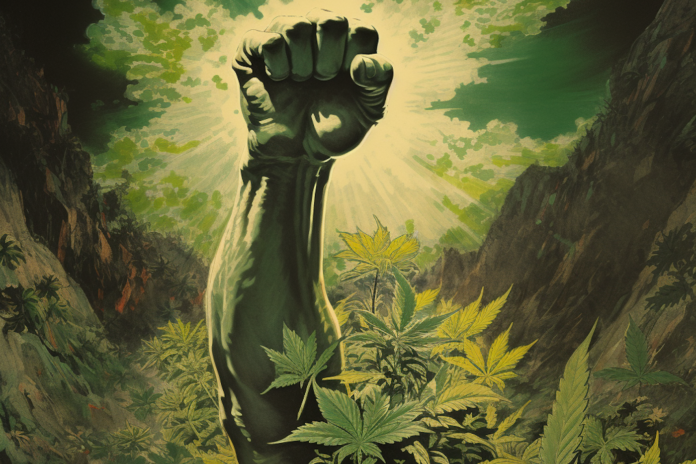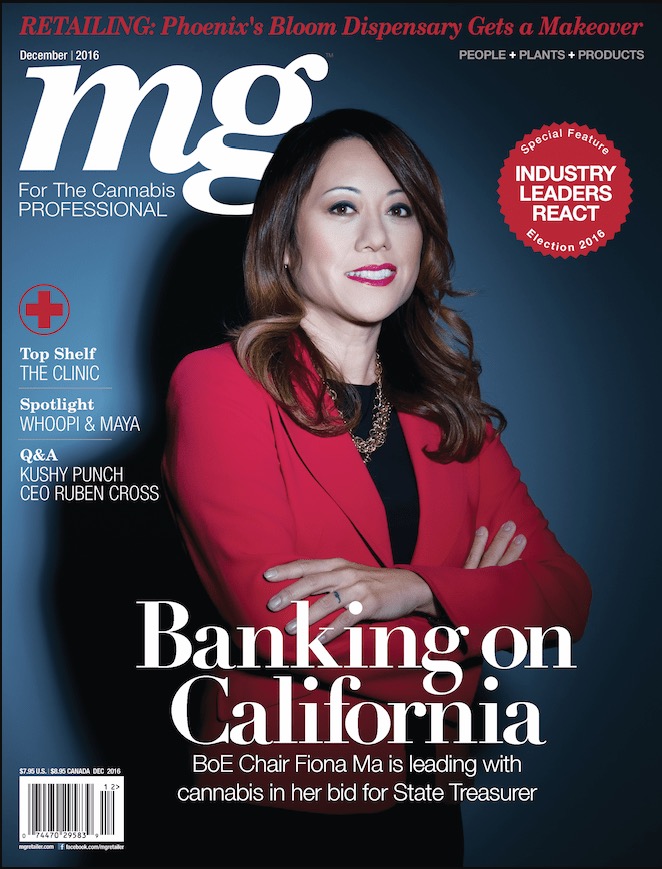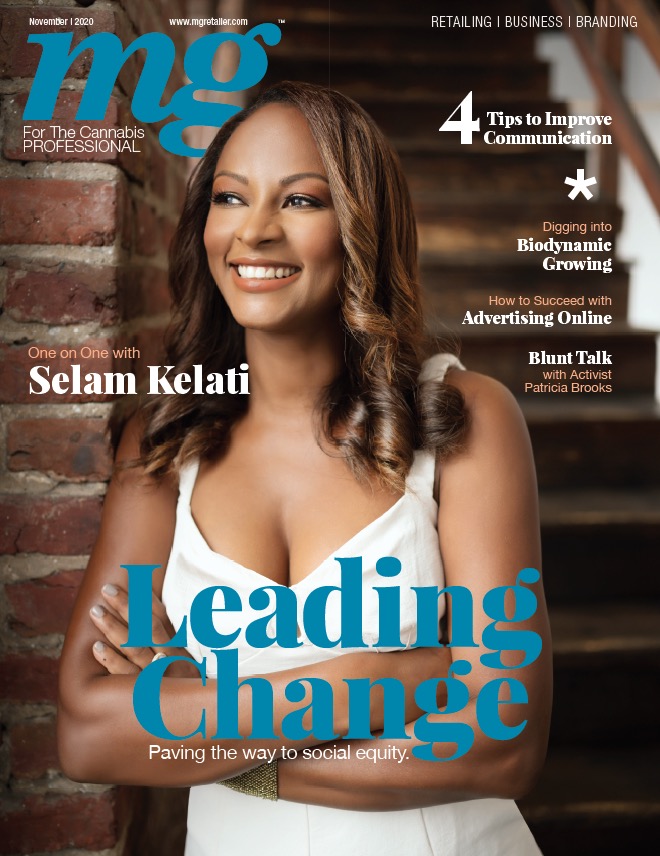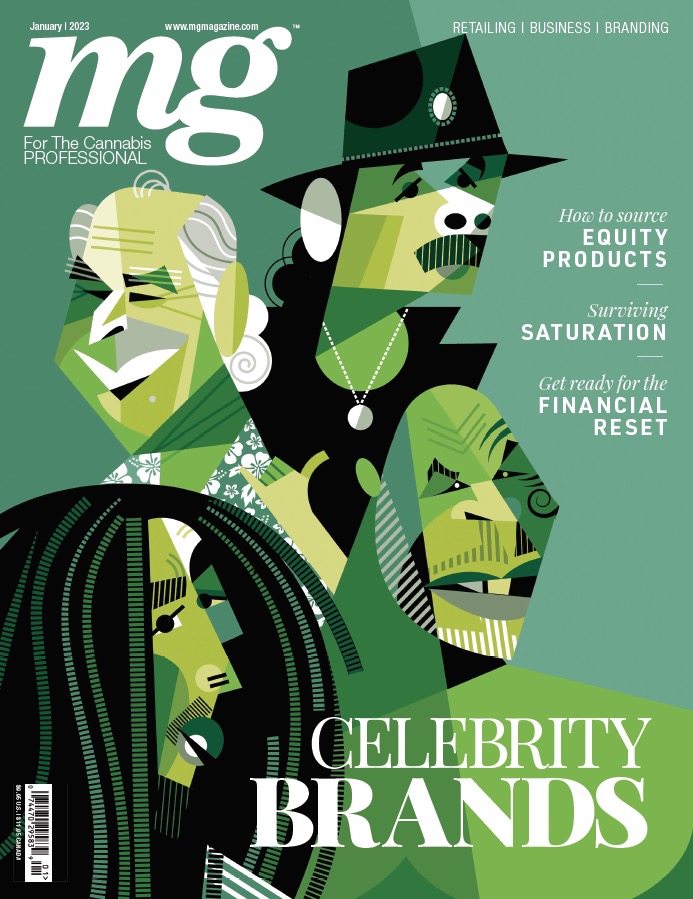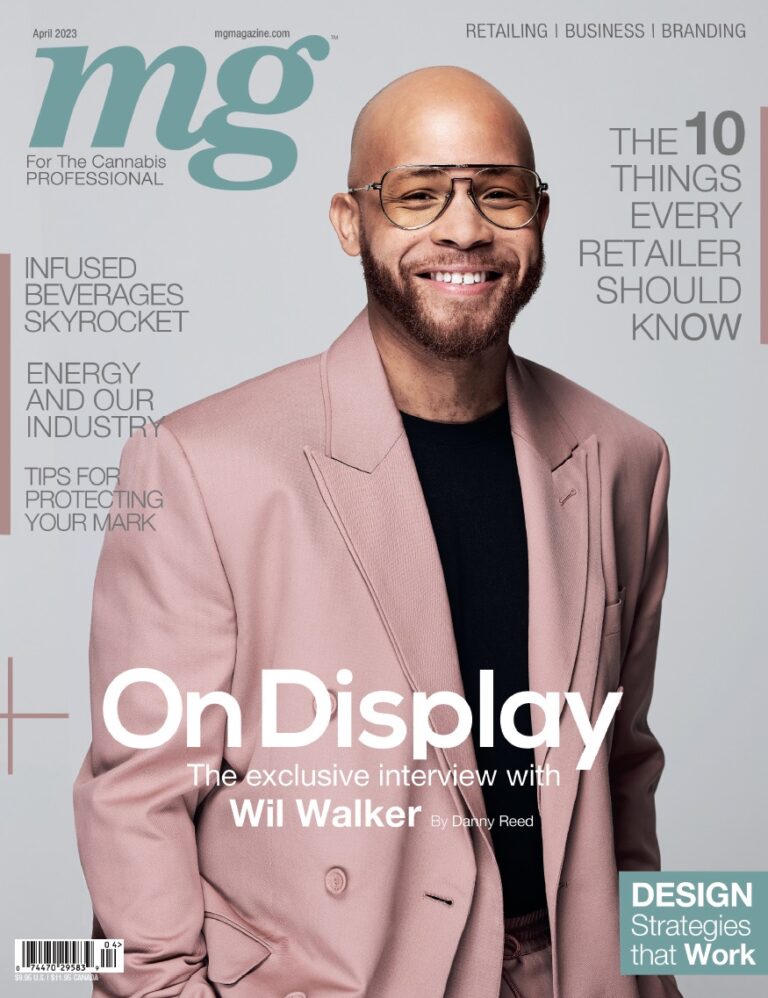This article is part of a series of historical perspectives about the legal cannabis industry.
Politicians and the legal landscape. Branding and marketing. Diversity, celebrity products, and retail design. These are a few of the issues that have resonated with the industry.
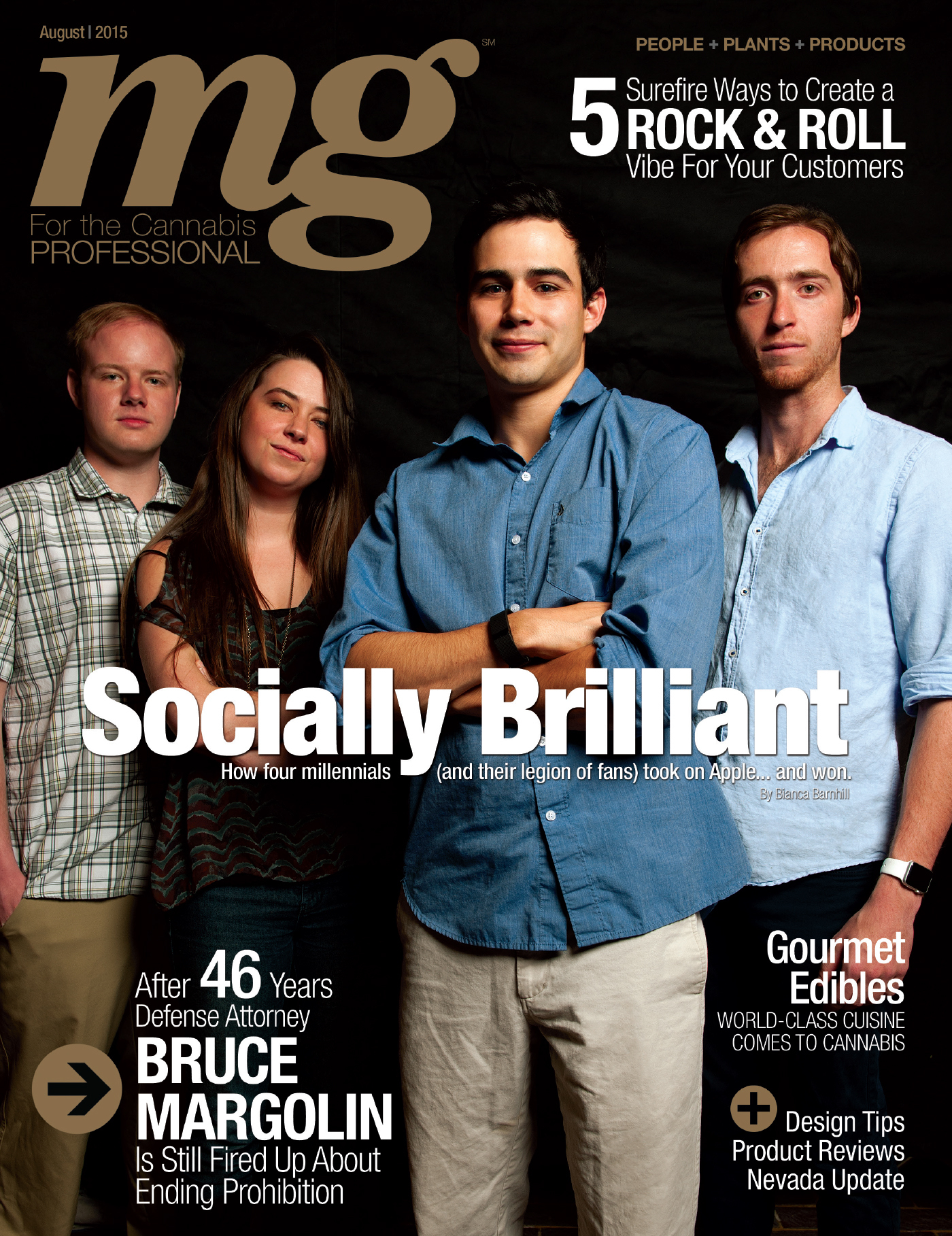
August 2015
Social media hadn’t yet become a marketing must-have when the team at social media app MassRoots adorned mg’s first cover. Founded with a seed investment of $150,000, within two years the company’s over-the-counter stock traded at a volume of more than $7 million in a single week. Following a series of minor scandals, the desktop and mobile apps ceased functioning by early 2020. The next year, MassRoots changed its name to Greenwave Technologies, divorced itself from cannabis, and is now a metal-recycling firm.
December 2016
Fiona Ma, then the chairwoman of the California Board of Equalization, was the first politician on whom mg focused—and for good reason. In the run-up to a campaign that would see her elected State Treasurer two years later, Ma was vocal about her support for California’s cannabis businesses. A certified public accountant by trade, she insisted on visiting farms to experience the challenges herself. She spoke with dispensaries about taxation issues. Her experiences led to a determination to fix the woeful state of banking. She’s still working on that.
October 2017
Retail always has been an important part of mg’s focus. In the early days, the magazine ran a small collection of new and trending products in each issue. By 2017, thirty-two states and the District of Columbia had legalized comprehensive medical programs. Consequently, the volume of new products skyrocketed and it became infeasible to continue the practice. Instead, the magazine began publishing retail buyers’ guides every spring and fall. The first, in October 2017, contained more than forty products.

November 2018
The November 2018 issue profiled thirty of the most highly regarded attorneys serving the industry, including big names like Bruce Margolin, Robert Hoban, Henry Wykowski, and Eric Shevin along with up-and-comers like Katy Young, Heidi Urness, and Heather Burke. A feature warned about emerging threats including civil lawsuits brought under the Racketeer Influenced and Corrupt Organizations Act that were sweeping swaths of unrelated businesses into high-stakes local spats simply because they had done business with the targeted company in the past.
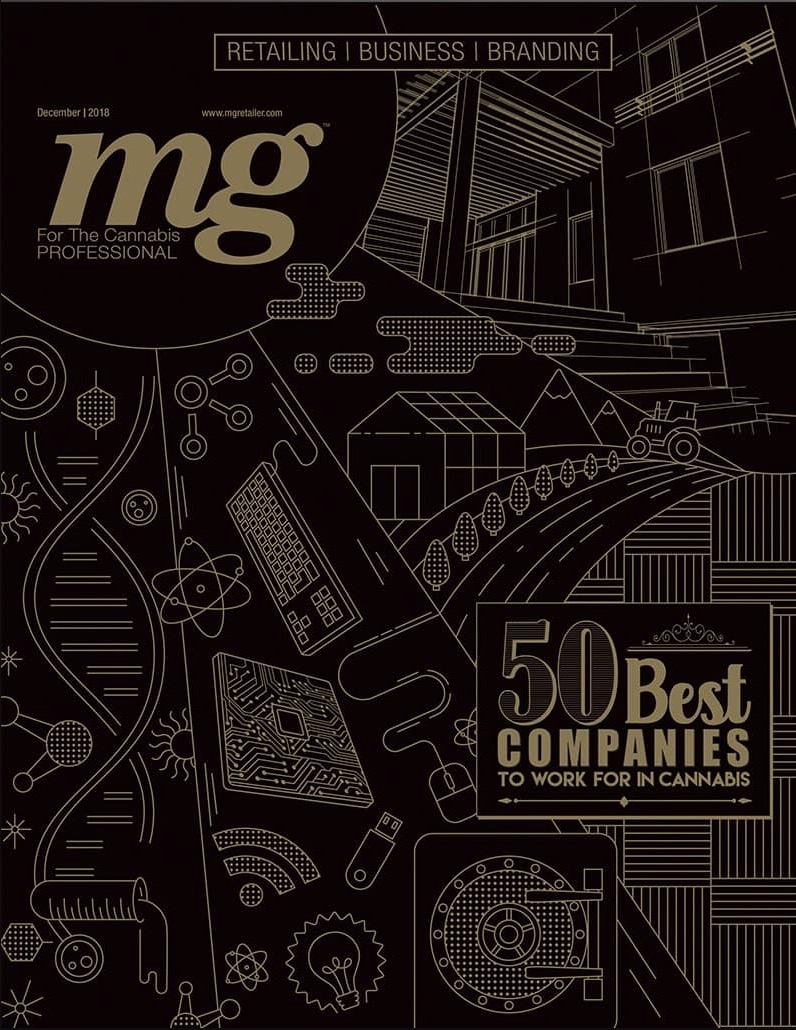
December 2018
When mg published its first list of the best companies to work for, the industry employed about 149,000 people. The depth and breadth of perks across entities of all sizes were awe-inspiring, including not only fully-funded insurance and 401(k) plans but also high-concept breakrooms, stock options, company retreats in exotic locations, and extensive paid time off. Also in the issue: a profile of Tim and Taylor Blake, the father-daughter duo behind the iconic Emerald Cup, revealing aspects of their lives and business not previously known.
July 2019
As products made from newly legalized hemp began to explode, mg’s team undertook a deep dive into the health-and-wellness sector. Cannabinoids were impacting every segment of traditional markets—food and beverage, beauty, leisure, and lifestyle—but senior consumers, terpenes, cannabidiol, and beverages were particularly hot trends. In November 2023, we followed up with an investigation into how cannabinoids synthesized from hemp threaten the industry and consumers.
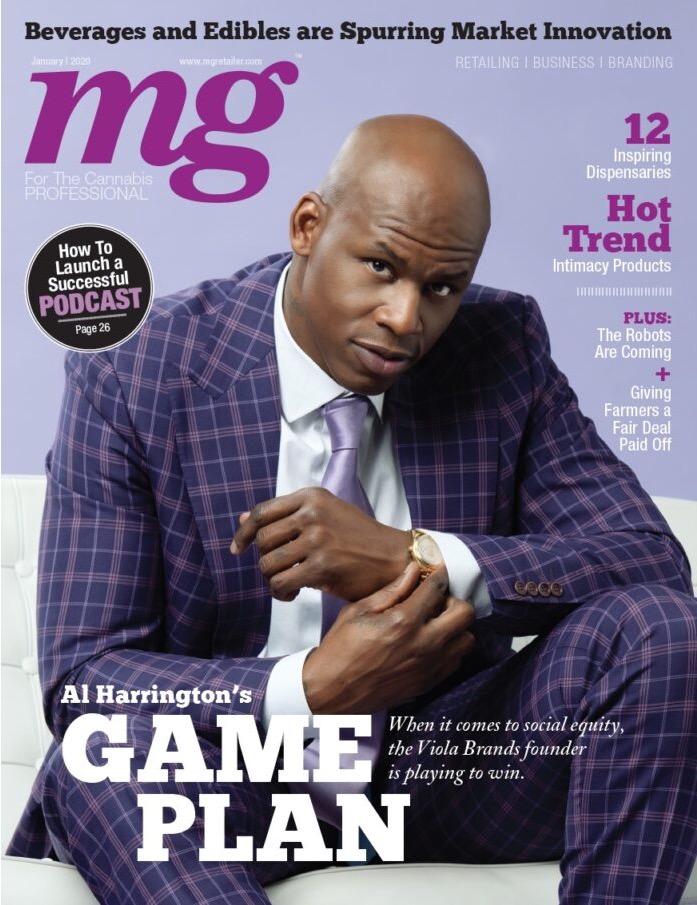
January 2020
In January 2020, mg became the first publisher in the market to launch a digital edition of its print publication. The edition expanded the magazine’s readership by making mg’s award-winning content and design accessible anywhere on any device. Advertisers increased their reach with the opportunity to embed live links, video, and animations. Every month, production designers continue to find innovative ways to make the pages come alive—as they did by animating John Taylor’s featured photographs of cover subject Al Harrington.
February 2020
Counterfeit products have been a challenge for the industry since its earliest days, threatening revenues, brand reputations, and consumer safety. Regulators and law enforcement in many states mostly ignored a thriving illicit market selling extremely convincing knockoffs for one-third to one-half the price of legal goods … until projected tax revenues plummeted by as much as 75 percent in 2019. One California operator destroyed “millions of dollars in packaging and hardware” in an attempt to reclaim its identity from counterfeiters in New York, where the problem still threatens to wreck a new adult-use market.
November 2020
As America embarked upon a long-overdue racial reckoning following a series of senseless killings of Black citizens by White police officers, calls mounted for the cannabis industry to face the glaring lack of diversity in its own ranks. Simply denouncing social injustice no longer was enough. To expand the conversation and share insight from the trenches about how the cannabis industry could address diversity intentionally and successfully, mg reached out to Black advocates and business owners. They had a lot to say. Some of their ideas have been adopted, but much work remains to be done.
February 2022
As the coronavirus pandemic abated and life slowly began returning to something resembling normal, trade shows geared up for a return to business as usual. mg’s comprehensive trade-show edition helped companies budget for, plan, and execute strategies to get the most out of attending and exhibiting.
January 2023
Celebrity partnerships and endorsement deals are complex and expensive and don’t always work out as planned. mg examined the risks and rewards and offered guidance from companies that have been successful.
April 2023
Reduced consumer spending, evaporating investment dollars, and a Congress gridlocked on critical reforms combined in the latter half of 2022 to create a bruising economic reality, especially for retailers. In response, many reevaluated everything from store design to marketing, product selection, technology, and customer service. The bottom line: Smaller stores are trending, empathic design is more important than bling, ecommerce is mandatory, and efficiency and flexibility are crucial.







